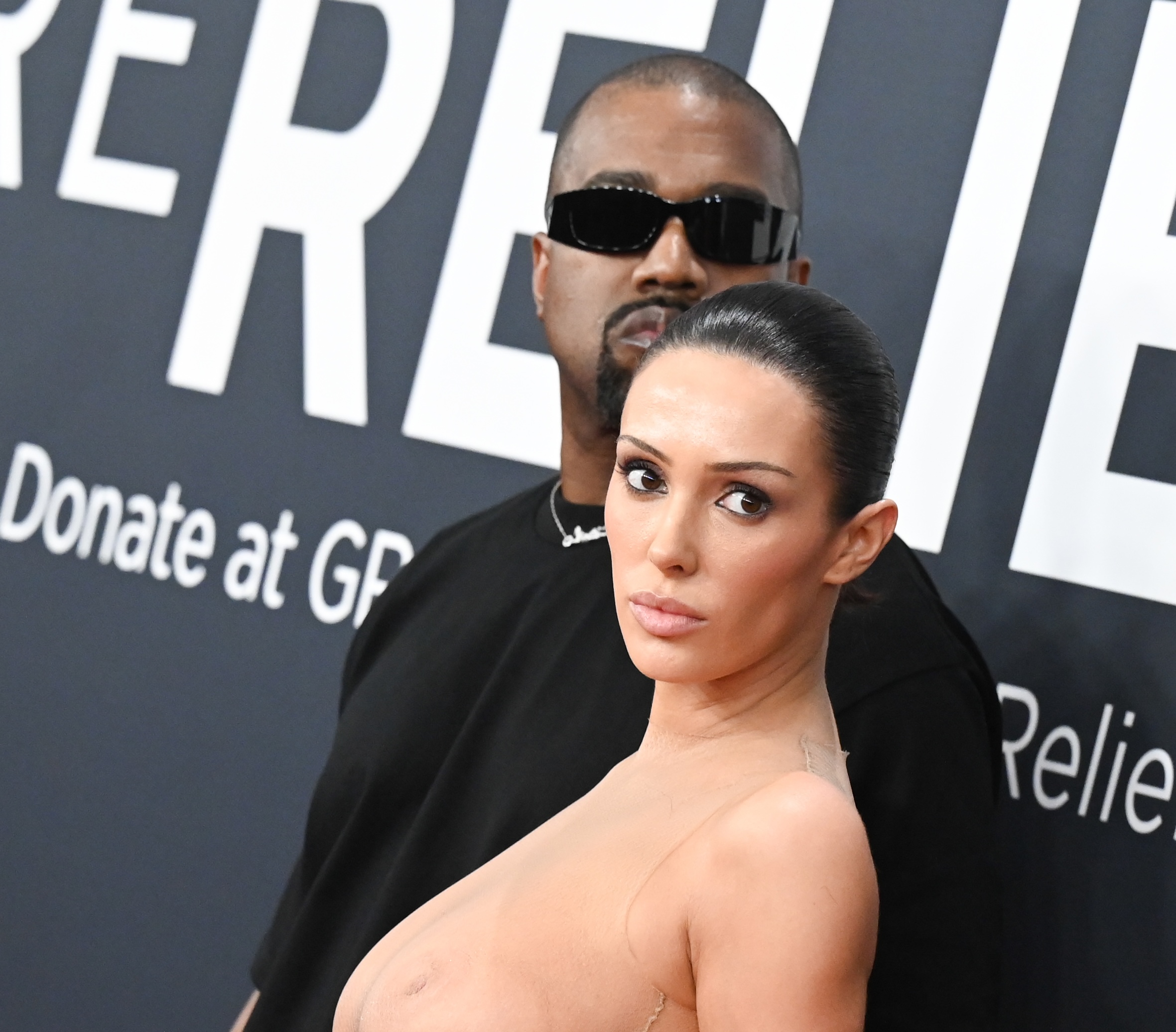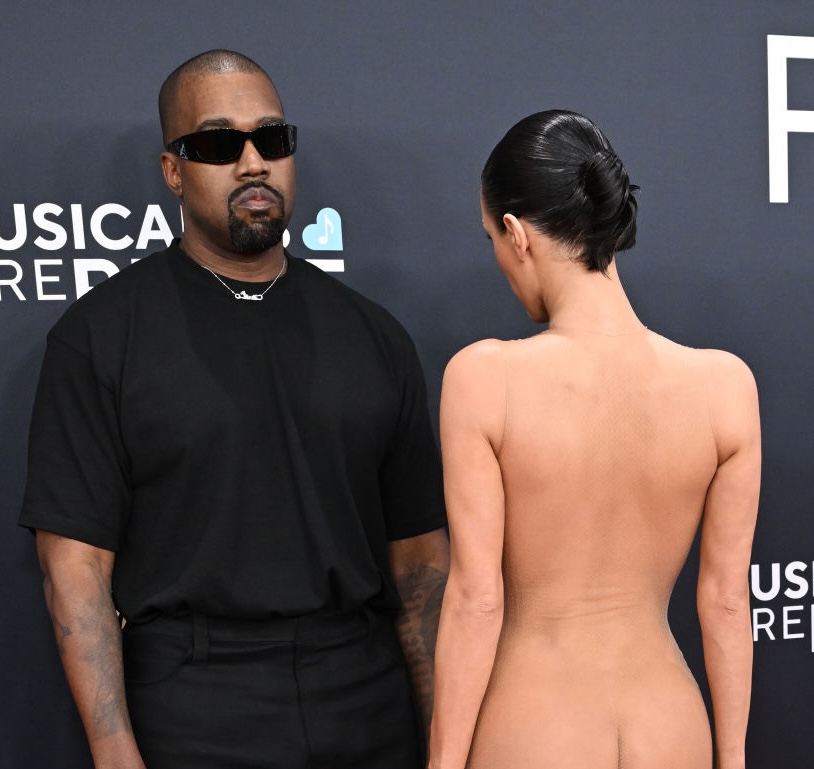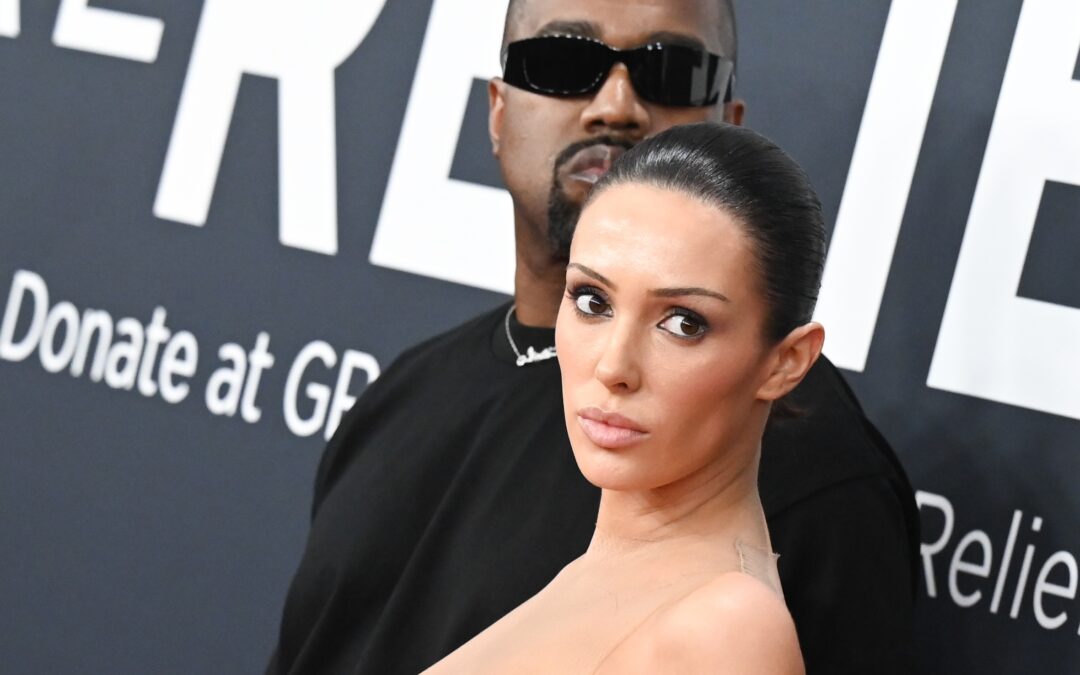Bianca Censori’s barely-there top is causing outrage in Spain – let’s talk about it
There’s been calls for her arrest.
Words by Charley Ross

Australian architect Bianca Censori has incited outrage with her outfit choice for market shopping in Mallorca with partner Kanye West. Wearing a black fish net bra top with a sheer bra that revealed her breasts – including her nipples – has led to online criticisms as well as reports of anger from locals. She was also wearing black bikini bottoms and a long black loin cloth.
Reports say that nearby people were “horrified” at the nature of her revealing outfit, and online critics have suggested she should be arrested for indecency.
This comes after Bianca’s controversial sartorial choices at the Met Gala earlier this month, which saw her don a near-nude skin-tight mesh dress. The piece more than hinted at the reality of her naked body, causing much discourse around the ethics around this outfit choice, as well as the suggestion that Kanye might be encouraging this method of provocative dress through methods of coercive control.
The conversation around women wearing, shall we say, “revealing” outfits is a particularly contentious one at the moment. This is because the organisers of Cannes Film Festival, one of the most glamorous cultural events of the year, recently updated the dress code to “prohibit nudity on the red carpet”, citing “decency reasons”. As well as perceived “naked dressing” the festival has also put a ban on oversized clothing.

This dress code change was announced just a day before the festival opened, with recommended outfits including frustratingly traditional choices such as “a little black dress, a cocktail dress, a dark-coloured pantsuit or a dressy top with black pants”.
It’s not the first time that restrictive dress codes at Cannes has been dubbed misogynistic and made waves. Back in 2015, women were barred from screenings for not wearing high heels, leading to Julia Roberts and Cate Blanchett walking the red carpet barefoot in different years, in protest against the dress code.
Anyway, the fact that an organisation and festival this influential sees fit to attempt to control how women dress, whether it’s by encouraging modesty, covering up and wearing a “baggier” silhouette or banning more revealing ensembles reminds us all of the many hoops women must jump through to achieve validation and acceptance. In a world that preaches the body positivity narrative when it suits, women’s bodies like Bianca’s are still being heavily policed, vilified and judged. It’s also worth pointing out that these constraints predominantly limits more women and queer people’s opportunities to express themselves, adding to the misogynistic messaging behind the entire campaign.
In addition, modest dressing in this sense clearly still has to be adhered to in a way that obeys Western cultural standards, with French laws around hijabs remaining problematic as they don’t allow Muslim women to cover their heads in various public spaces. Which begs the question: why are women not allowed to reveal themselves in one way, and not the other? Why isn’t a women’s choice to dress how she pleases the most paramount issue of all?
‘Our choices, individuality and bodies are being policed.’
In a world where a nipple is viewed as “indecent” at a Spanish food market (as well as on Instagram algorithms) and women are forced into traditional dress on the red carpet, but prevented from wearing it in other instances, it is clear that our choices, individuality and bodies are not being prioritised.
After all, women are already subjected to body image pressures from all directions. What with unrealistic beauty standards plastered over social media, tweakments becoming normal “self care” fare, Ozempic making its rounds around the Hollywood community as well as those closer to home. And now, major elite institutions are clamping down even more on what should and shouldn’t be worn on the world’s cultural stage. That, and the vitriolic reaction to Bianca’s revealing sartorial choices, feel beyond uncomfortable and an indictment of society’s controlling nature of women’s bodies, as well as the undeniable influence the male gaze has had on this toxic cultural norm. Women are allowed to be “nude” on screen when it suits a patriarchal story being told, but not when they want to wear a sheer top on holiday or wear something that makes them feel empowered – in a formal or informal setting.
So when women’s bodies like Bianca’s are being vilified online for lack of “decency”, perhaps we should question whether this focus on decency should in fact come from actions and conversations that support the empowerment of women to wear whatever they want. To help shed the unrealistic expectations and double standards so many of us live with day to day.
And, above all, due to its meteoric influence it is hugely down to Hollywood’s glitzy, influential organisations and figures to lead this change in perception. To lead the discourse away from normalising the shaming of women’s bodies and towards liberating them from this policing.
Photo: Getty

